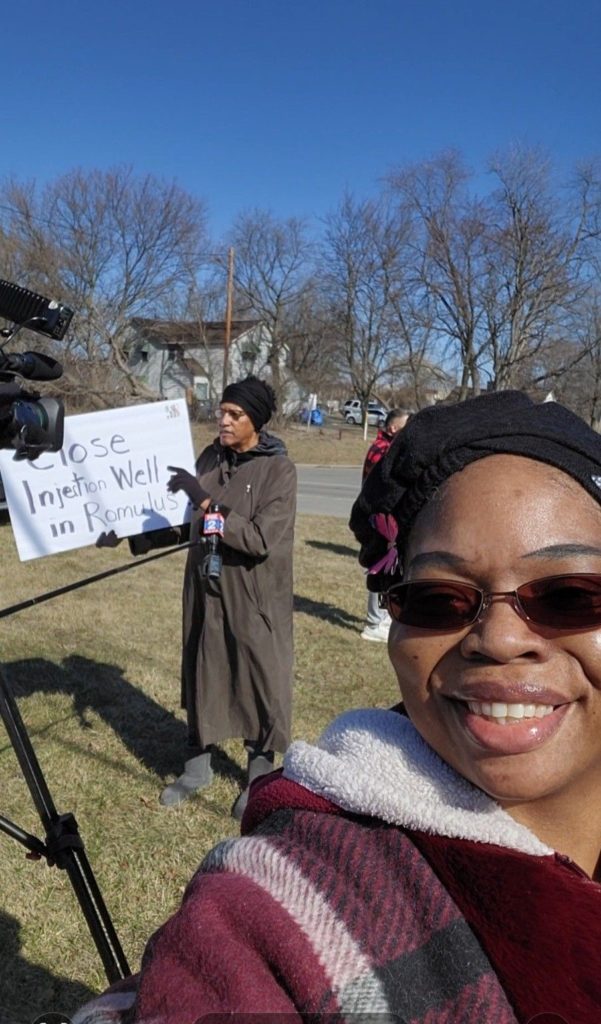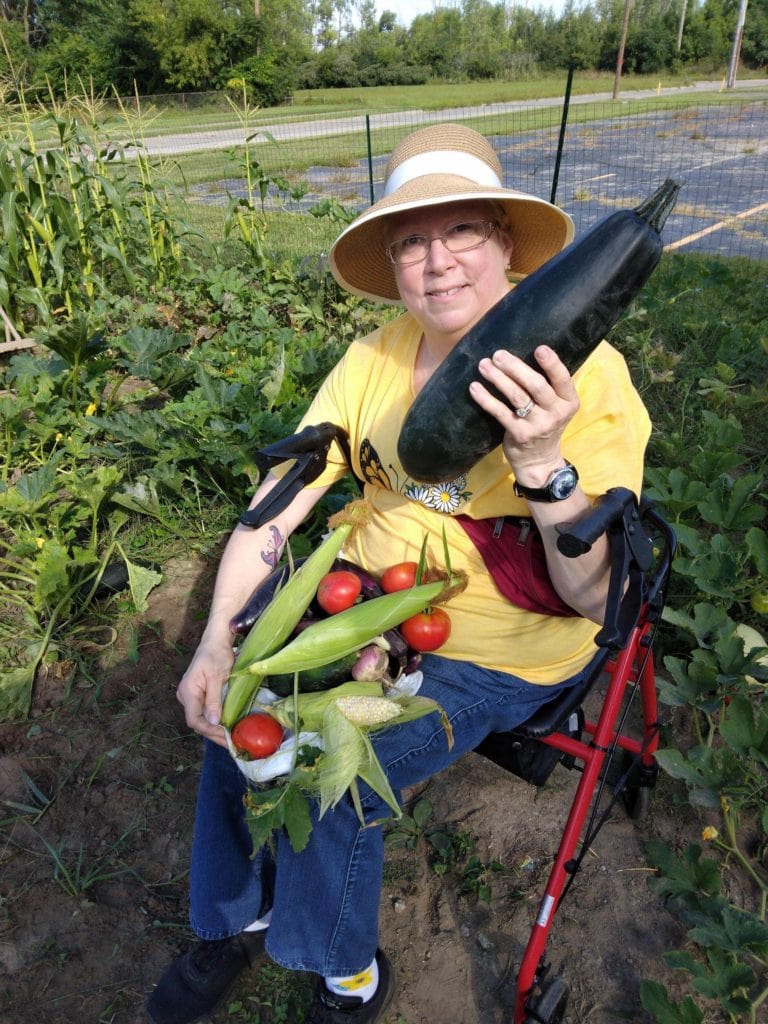
In February 2023, a train carrying more than 115,000 gallons (435,000 liters) of toxic chemicals derailed in East Palestine, Ohio, United States. The place is 230 miles (370 kilometers) from Inkster, Michigan, where Sharon-Inkster Seventh-day Adventist Church is located.
The catastrophe released cancer-causing chemicals that polluted the East Palestine air, soil, and water, eventually spreading to adjoining communities.
Springing into Action
Jacqueline Galloway-Blake, a devoted 40-year member of Sharon-Inkster church, burst into action when she learned toxic waste from the derailment in Ohio months prior was now being secretly shipped to a toxic injection well just four miles from the Sharon-Inkster church.
“We do not want health-destroying chemicals in our community!” Galloway-Blake explained. “I was not going to sit by quietly as they shipped toxic waste all the way from Ohio to our backyard, where our people live.”
Galloway-Blake didn’t hesitate when she learned about a protest against the toxic waste. After all, she had stood up for this same community two decades earlier to protest the installation of the injection wells.
Joining a protest with around 50 people near her home, Galloway-Blake crafted signs that read, "Don’t dump poison where people live!" on one side and, “Close the injection well in Romulus!” on the other. Her presence at the protest soon caught the attention of the local media.
Galloway-Blake’s history with activism runs deep, rooted in her family’s experiences and a strong sense of justice. Growing up, she heard stories from her parents about their own struggles during the era of segregation, and at 15, she participated in the 1963 March on Washington. This historic event left an indelible mark on her, inspiring her lifelong commitment to social justice causes.
She knew that her efforts couldn’t end with the protest against the toxic waste dump. Galloway-Blake contacted Keynel Cadet, senior pastor of the Sharon-Inkster church, who shares her passion for community well-being and advocacy. Together, they composed a letter to local, state, and federal lawmakers, urging them to address the toxic waste issue.
“We wanted and needed to make a difference,” Cadet said. “As a church, we have a light that we are called to let shine. That means standing up and making a difference. We cannot keep silent and expect things to take care of themselves. We must be a light and make that known in this dark world.”



In an urban area plagued by poverty, deteriorating infrastructure, food deserts, and high rates of diabetes and chronic illness, the Sharon-Inkster church family decided to act.
“One day, I noticed that our church has a beautiful, grassy lot right next to our garage. At that moment, God gave me the idea to put a garden there,” Galloway-Blake explained. “We could grow vegetables and help people learn the value of eating fresh foods. And we would give them access to this garden for free.”
After reviewing grant options and applying for several grants, The Pollination Project awarded US$1,000 for the church garden. The project received overwhelming support from Cadet and the church community. From plowing the land to installing a fence and planting seeds, church members and friends rallied behind the initiative.
“It’s a little garden that has a lot of power,” Cadet said. “As a church we have always believed in the importance of health and the prevention of chronic disease and illness. That is top of mind here at Sharon-Inkster. This garden is designed to educate and aid our community. But at the same time, it’s an opportunity to let them see our church as a light and as a people who care about the needs, suffering, and health of those around us.”
Drawing from his personal experience when caretaking for his mom, Cadet feels called to educate people to move away from dietary excesses and junk foods.
“God’s original plan for us is best,” he said. “If we can move toward His plan, we’ll be healthier and live longer, better lives.”
Seeds in the Ground and Hearts
The garden vision became a reality and now provides the community with an array of vegetables, including corn, eggplant, okra, turnips, kale, potatoes, green beans, zucchini, and squash.
One Sunday as volunteers were weeding the garden, a woman was walking by, and Galloway-Blake called out to her, saying, “Excuse me, this is your garden!”
“When the lady asked me what I meant, I explained to her that we secured a grant to build this garden for her and others to help provide healthy foods to combat diabetes and other illnesses,” Galloway-Blake said. “The lady was thrilled and said to me, ‘My mother has diabetes!’ ”
For Galloway-Blake, this encounter demonstrates that the garden extends the church’s role beyond its four walls and into the hearts and lives of the people nearby. The church was sowing seeds into the ground and into people’s hearts and lives.
Moreover, both Galloway-Blake and Cadet recognize that just as God called the first man and woman to dress and keep the garden of Eden, the church is called to dress and keep the earth while planting seeds in the gardens of people’s hearts.
“God made a beautiful world,” Cadet said. “We are responsible for it, and for the people He placed on in it. His people and the earth are gardens we are called to sow seeds into, dress, and keep. That’s why whatever happens in and around our community is our concern.”
The original version of this story was posted by the Lake Union Herald.